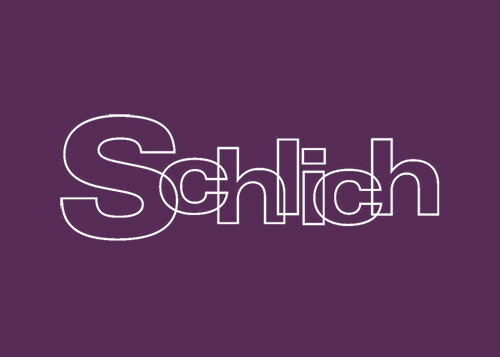The validity of a priority claim is fundamental for many patent proprietors, who file priority applications and then publish their invention before filing a subsequent application which claims priority from the initial application. In order for a priority claim to be valid, chain of title must be maintained. Failure to timely maintain chain of title between priority applications and subsequent priority claiming applications can lead to loss of priority entitlement.
A recent case from the EPO Boards of Appeal, T 0725/14, sees the Board consider again the issue of priority entitlement and what constitutes a valid transfer of priority rights. Of course, it is not the first time these issues have been considered but where this case is slightly different is with respect to the standpoint from which the points are considered. Most frequently, the validity of a priority claim is challenged by an opponent alleging that there was no timely transfer of priority rights from the applicants of a priority application to those of a subsequently filed priority claiming application. However, in this case, the opponent-appellant asserted that despite the priority application and priority claiming application being filed in the name of the same company, namely Avantium, the priority claim was invalid because the priority rights had been validly assigned to a third-party, namely Furanix, before the filing date of the subsequent application.
Article 87(1) EPC provides that:
Any person who has duly filed, in or for
(a) any State party to the Paris Convention for the Protection of Industrial Property or
(b) any Member of the World Trade Organization,
an application for a patent , a utility model or a utility certificate, or his successor in title, shall enjoy, for the purpose of filing a European patent application in respect of the same invention, a right of priority during a period of twelve months from the date of filing of the first application.
Thus, for a priority claim to be valid, the person claiming priority i.e. the applicant of the subsequently filed priority claiming application, must be entitled to the priority right when the subsequent application is filed.
In T 0725/14, the contested patent, EP2105439, was granted on a European patent application which had been filed as a divisional application of an earlier European patent application filed on 12 March 2007 under the PCT as PCT/EP2007/002146. PCT/EP2007/002146 claimed priority from a European patent application with a filing date of 10 March 2006. Both the PCT application and the priority application were filed in the name of Avantium; however, the opponent-appellant argued, with reference to an assignment document that was executed on 1 March 2007, that Avantium didn’t own the right of priority arising from the priority document when the PCT was filed. The opponent-appellant asserted that the right of priority was in fact owned by the assignee, Furanix, who were thus valid successors in title.
The outcome of the case thus hinged on whether the assignment document was effective in transferring the priority rights arising from the priority document from Avantium to Furanix.
In line with established case law, the Board took the position that the transfer of a priority right has to be assessed by applying national law, in the present case the Dutch Civil Code. This was not contested by either party.
Apparently applying Dutch law, the Patentee argued that (1) because a request to record the assignment at the EPO was not made until 24 October 2007, the transfer was not effective before this date, and (2) according to the “Haviltex” decision, a decision of the Dutch Supreme Court, it is the intention of the parties when executing a contract that is decisive rather than the wording of the contract per se, and the intention of both Avantium and Furanix was for Avantium to retain the priority right, as evidenced by the fact that the assignment did not mention the priority right explicitly.
Unsurprisingly, the Board rejected argument 1, confirming that the date at which a request is made to record an assignment at the EPO has no bearing on the effective date of the assignment itself.
Regarding argument 2, the Board first turned to the wording of the assignment itself which read, Avantium “declares to have assigned all rights pertaining to European Patent application Nos. 06075564.2 and 06075565.9” to Furanix. The assignment also stated that Furanix “declares to accept all these rights”.
Although the Board explicitly accepted that under the law of the Netherlands, in particular according to the “Haviltex” principle, the intentions of the parties, which possibly contradict the wording of the contract, are relevant or even decisive for the interpretation of an agreement, the Board could see no reason to believe that “all rights” did not include priority rights.
The Board considered the declaration by Mr T B Van Aken (who to complicate matters, signed the assignment on behalf of both the assignor and assignee) but was unconvinced by the explanations therein regarding the purported intentions of the respective parties.
In the Board’s opinion, it was clearly the intention of both Avantium and Furanix, who both executed the assignment, to effectuate the assignment of all rights including priority rights on 1 March 2007. As such, the priority claim was held invalid.
Could Rule 139 EPC save the day?
The Patentee argued that should the Board conclude that the assignment was valid in assigning the priority right from Avantium to Furanix on 1 March 2007, then the Patentee should be allowed to correct the applicant name of the parent application from Avantium to Furanix.
The Board however dismissed this request on the basis that corrections under Rule 139 EPC must introduce what was originally intended and for the entirety of the proceedings, the Patentee had argued that the intention of both Avantium and Furanix was for Avantium to retain the priority right. As such, Avantium was in a catch-22 situation, with no apparent way out.
As such, the priority claim was held invalid and the claims were held to lack novelty over the publication of the priority application. As a consequence, the patent was revoked.
All in all, T 0725/14 serves to remind proprietors that maintenance of chain of title between priority applications and subsequent priority claiming applications is absolutely critical and should be considered thoroughly before filing any subsequent applications.
Share this article
Our news articles are for general information only. They should not be considered specific legal advice, which is available on request.









